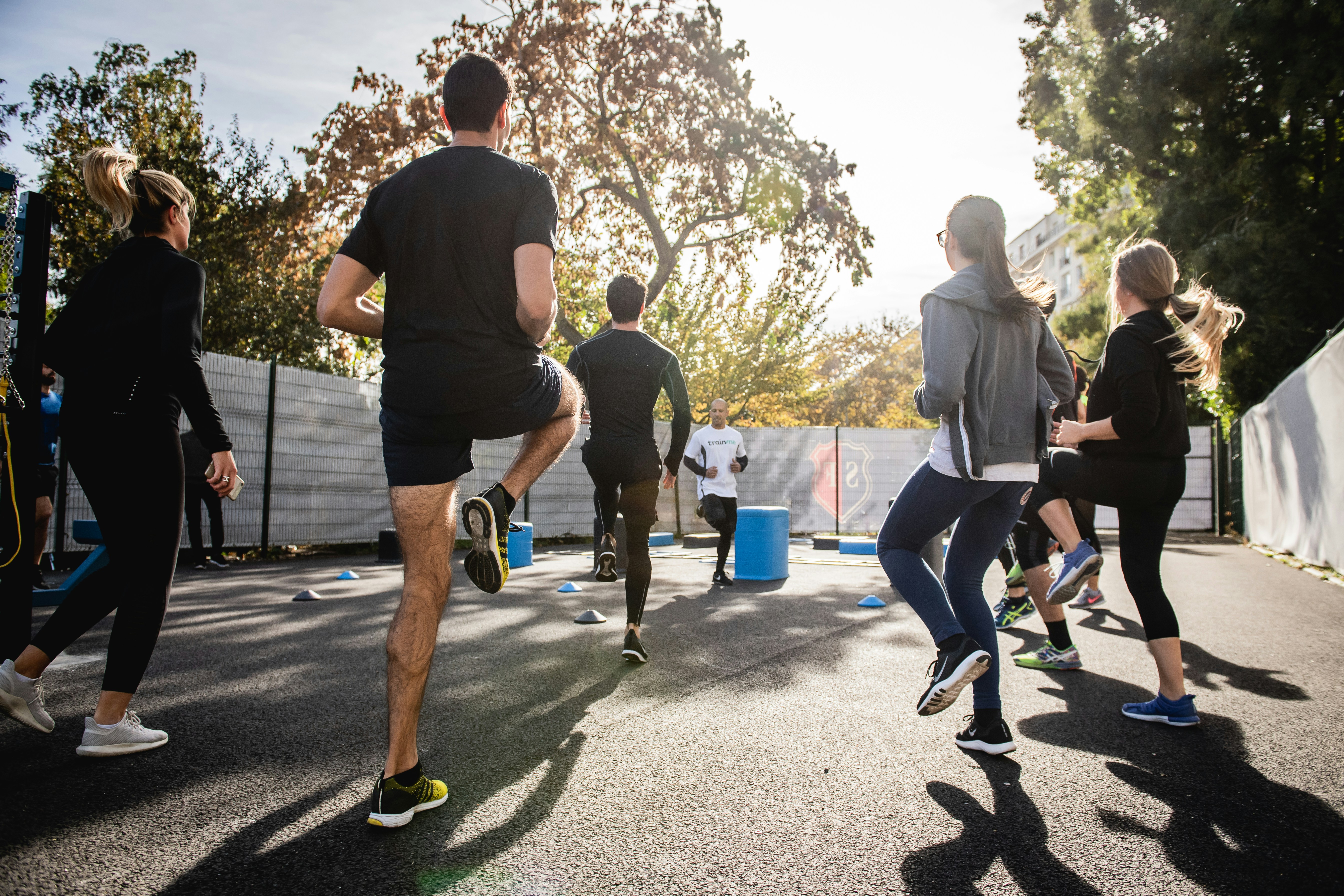The Mental Health Benefits of Sports
Subramanya N
Co-Founders

In our fast-paced world where stress and anxiety have become unwelcome companions for many, the search for effective mental health solutions has never been more important. While technological advances have made our lives easier in many ways, they've also contributed to increasingly sedentary lifestyles and disconnection from physical activity – the very thing our bodies and minds need to thrive.
Sports and physical activities offer a powerful, accessible pathway to better mental health that's often overlooked in favor of more modern interventions. The connection between physical activity and psychological wellbeing isn't just anecdotal – it's backed by a growing body of scientific research showing that regular participation in sports can transform not just our bodies, but our minds.
Understanding Mental Health
Before diving into the benefits, it's important to understand what we mean by "mental health." Mental health encompasses our emotional, psychological, and social wellbeing. It affects how we think, feel, act, handle stress, relate to others, and make choices. Just like physical health, mental health exists on a spectrum and requires regular maintenance and care.
Mental health conditions like anxiety and depression affect millions of people worldwide, with approximately 1 in 5 adults experiencing a mental health issue in any given year. These conditions can significantly impact quality of life, relationships, and even physical health – making effective, accessible interventions critically important.
 Regular participation in sports activities can create lasting connections and improve mental wellbeing.
Regular participation in sports activities can create lasting connections and improve mental wellbeing.
The Science Behind Sports and Mental Health
The positive relationship between sports and mental health isn't magic – it's biology. When we engage in physical activity, our bodies release powerful chemicals that directly affect our brain function and mood:
- Endorphins: These natural mood elevators are released during exercise, creating what's often called a "runner's high" – that feeling of euphoria and reduced perception of pain.
- Serotonin: Regular physical activity boosts levels of this important neurotransmitter, which helps regulate mood, sleep, and appetite.
- Dopamine: The body's "reward chemical" increases during exercise, creating feelings of pleasure and reinforcing the desire to continue the activity.
- Reduced Cortisol: Physical activity helps lower levels of this stress hormone, which when chronically elevated can contribute to anxiety and depression.
Key Mental Health Benefits of Sports
1. Stress and Anxiety Reduction
Perhaps the most immediate mental health benefit of sports is stress reduction. Studies show that 20-30 minutes of exercise can make people feel noticeably calmer, with effects lasting hours after the activity ends. This happens not only through the biochemical changes mentioned above but also through the psychological distraction that sports provide – giving your mind a break from ruminating on worries as you focus on the activity at hand.
Research indicates that about 75-90% of doctor visits are for stress-related complaints, making effective stress management techniques like sports participation crucial for public health.
2. Improved Sleep Quality
Quality sleep is fundamental to good mental health, yet many people struggle with sleep disturbances. Regular physical activity through sports has been shown to improve both sleep quality and duration. By expending energy, regulating body temperature, and reducing anxiety, sports help prepare your body and mind for restful sleep – creating a positive cycle that further enhances mental wellbeing.
The timing matters too – morning and afternoon exercise typically promotes better sleep, while intense evening activity might delay sleep onset for some people.
 Individual sports can help develop mental focus and personal resilience.
Individual sports can help develop mental focus and personal resilience.
3. Depression Management and Prevention
The relationship between sports and depression is particularly noteworthy. Multiple studies have found that regular exercise can be as effective as antidepressant medication for mild to moderate depression in some individuals. Sports help combat depression by increasing neurotransmitters like serotonin and norepinephrine, reducing inflammation, and promoting neural growth.
Even modest amounts of physical activity – as little as 30 minutes of moderate exercise three times a week – can make a significant difference in depressive symptoms.
4. Enhanced Self-Confidence and Body Image
Participating in sports regularly contributes to improved self-esteem and body image – regardless of actual changes in physical appearance. As you develop skills, achieve goals, and witness your body performing feats you perhaps thought impossible, your perception of yourself naturally improves.
This enhanced self-confidence often extends beyond the playing field into other areas of life, including work, relationships, and how you approach challenges.
5. Social Connection and Community
Team sports in particular offer powerful social benefits that contribute significantly to mental health. The camaraderie, shared goals, and mutual support found in team environments help combat isolation – a major risk factor for mental health issues.
Research has consistently shown that participation in team sports correlates with lower rates of anxiety and depression compared to individual activities. A study published in the Journal of Sports Science & Medicine found that team sport athletes reported lower rates of depression and anxiety than those participating solely in individual sports.
6. Cognitive Benefits and Brain Health
Sports don't just benefit your emotional state – they actually improve how your brain functions. Regular physical activity has been linked to improved concentration, sharper memory, faster learning, enhanced creativity, and reduced cognitive decline as we age.
These cognitive benefits stem from several mechanisms, including increased blood flow to the brain, the growth of new neural connections, and the release of growth factors that help create new brain cells.
Finding the Right Sport for Your Mental Health
While the mental health benefits of sports are universal, the "right" sport varies from person to person. Consider these factors when choosing an activity:
- Personal preferences: You're more likely to stick with something you genuinely enjoy
- Individual vs. team dynamics: Consider whether you thrive in social settings or prefer solitary activities
- Skill level: Beginning with an overly challenging activity can be discouraging
- Accessibility: Choose sports that fit your schedule, location, and budget
- Physical limitations: Select activities appropriate for your current physical condition
Remember that the "best" sport for mental health is simply the one you'll participate in consistently. Whether it's basketball, swimming, cycling, martial arts, or even walking – regular engagement is what yields the benefits.
Getting Started: Making Sports Part of Your Mental Health Routine
If you're new to sports or returning after a break, here are some tips to help you incorporate physical activity into your routine:
- Start small with achievable goals, gradually increasing duration and intensity
- Schedule your activities like any other important appointment
- Find an accountability partner or join a club for motivation
- Track your progress, including mental health benefits you notice
- Mix different activities to prevent boredom and work different muscle groups
- Be patient with yourself – building habits takes time
Conclusion: Sports as a Mental Health Strategy
The evidence is clear: regular participation in sports offers significant, measurable benefits for mental health. From biochemical changes that improve mood to social connections that combat isolation, sports provide a holistic approach to mental wellbeing that complements other strategies like therapy and medication when needed.
As we continue to face rising rates of anxiety, depression, and other mental health challenges, incorporating sports into our regular routines represents one of the most accessible, affordable, and effective interventions available. Whether you're managing an existing condition or focusing on prevention, finding a sport that brings you joy can be a powerful step toward better mental health.
At NockOut, we're committed to making sports more accessible to everyone. Through our platform, you can easily find sports activities, join teams, and connect with like-minded individuals who share your interests. Take the first step toward better mental health today by exploring the sports opportunities available in your area.


